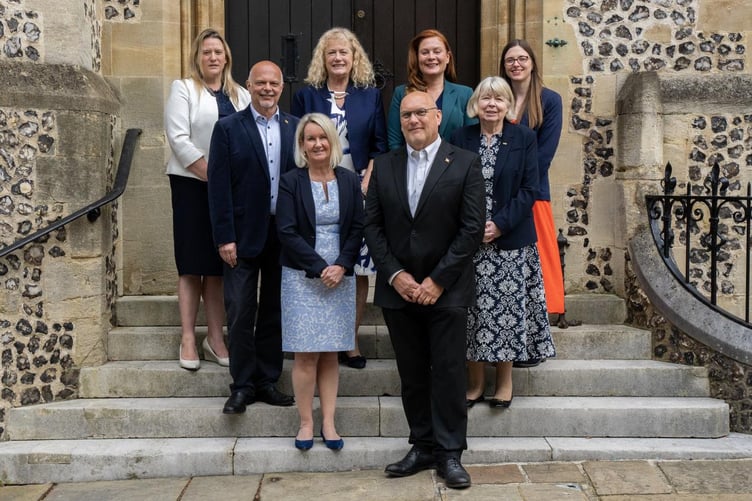A new "historical chapter" is set to begin for Hampshire as the county council cabinet has approved moving forward with devolution and the introduction of a mayor.
After 90 per cent of council members supported the devolution bid in an extraordinary full council meeting, the Hampshire County Council cabinet gave the final approval today (January 10).
It means the county council will ask the Government if it can be part of devolution discussions to bring more money and decision-making power to Hampshire with a new combined authority.
The Government’s White Paper was published on December 16, and the council has until Friday (January 10) to adopt it.
With all Hampshire local authorities saying yes to devolution, the county council will now write to the Minister of State for Local Government and Devolution about the commitment to create a mayoral combined authority for the whole of Hampshire and to be included in the Devolution Priority Programme (DPP) as a fast track to delivering devolution for the area.
At the cabinet meeting, Kristy North, cabinet member for universal services, said that the full council meeting recognised that the position “we are put on doesn’t give us the option to do nothing”.
Lulu Bowerman, cabinet member for highways and waste, described the last 21 days from when the White Paper was published as a “rollercoaster”.
She said that the decision to create a strategic authority and a mayor will bring “strategic leadership”, which will “open the door for allocation funds”.
“I think it’s essential we make the best case to be accepted on the priority programme, and therefore, we have that opportunity to put forward what we would like to see happen,” she said.
Regarding the Local Government Reorganisation (LGR), which aims to replace the two-tier system with larger unitary authorities with a population of at least 500,000, Cllr Bowerman said she was struggling. There are concerns, particularly in areas such as the east, there are no parish councils so decision-makers and democratic decisions are away from the people they affect.
She said: “Removing the borough council will concern residents. I am also concerned about that, and I don’t think there is enough clarity on that at the moment. The 500.000 number is rather a large number.”
Hampshire, with a history spanning about 1,000 years, is the oldest shire in England. Like many counties, it was originally divided into administrative regions known as hundreds during the late Anglo-Saxon period, a system that was revived in the 19th century.
Cllr Bowerman said: “Hampshire has evolved in change for over 1,000 years, and being positive about potential changes ahead, we just have to see this as another chapter in history as it adapts to this century and the current political, socioeconomic climate.”
Leader of the council, Cllr Nick Adams-King, reiterated that the “profound” and “significant” decision all parties are making.
“Somewhat sobering to think that it may be that I’m the final leader of Hampshire County Council, and when I became leader last May, I certainly didn’t think I’d be in this position, but we are where we are. We need to worry about things that we can influence and do our best for our residents around those, and we cannot.
“Devolution will bring powers from the government. It will accumulate the powers currently held by the upper-tier councils, provide us with some money, and give us a seat at the table of the Council of Regions.
“It will also allow us to influence the government and make better decisions closer to the people we serve. Far better that we can take those powers and use them to the benefit of the people that cheer and adjust them to the circumstances that we find ourselves in than to wait for the government to tell us what to do nationally.”
The next important event that will establish the route for the devolution in Hampshire and the Solent region will be January 31, when ministers will confirm whether Hampshire will be part of the DPP and whether elections will be postponed.





Comments
This article has no comments yet. Be the first to leave a comment.